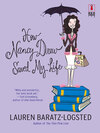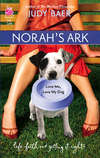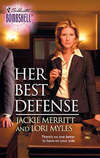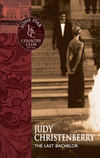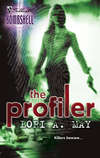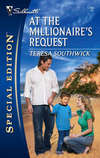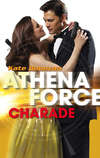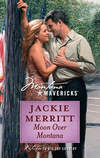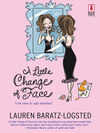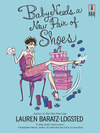Kitabı oku: «How Nancy Drew Saved My Life», sayfa 2
chapter 3
Then came the call. It was by one Mrs. Fairly, definitely a Mrs. who would never allow herself to be addressed as Ms., who requested I come to her master’s—master’s?—Park Avenue home for an interview. Clearly, this was a step up from Ambassador Buster Keating’s home, where I’d originally been interviewed and hired by his disinterested wife. I was now to be hired by a minion, which I figured meant I was moving up in the world.
Trying to answer that ever-popular euphonious question, WWNDD—What Would Nancy Drew Do?—I searched my practical wardrobe for the perfect persuasive costume to wear. Rejecting the casual allure of slacks and the confidence-inducing appeal of a dressy dress, I at last settled on a sensible plaid skirt and short-sleeved turtleneck I found in the back of my closet. I had no idea where these garments came from, could not for the life of me remember purchasing them, but when I looked in the mirror I saw they were doing the trick. Adding my mother’s pearls and unassuming flats to the picture, even though the flats gave me none of the height I so badly needed, I was ready to roll.
But first I had to run the gauntlet of Aunt Bea’s children.
“You look boring,” said Joe, the oldest at fifteen. “I’d never date you.”
“That’s a hideous combination,” said Elena, thirteen.
“Who would ever wear pearls with plaid?” sniffed Georgia, nine.
I was tempted to tell her that I was pretty damn sure Nancy Drew would wear plaid and pearls on an interview—hell, Nancy, who always wore gloves when she went out, but for entirely different reasons than why I ever did, would have undoubtedly worn gloves, too—but I didn’t want her to think I was crazier than she already clearly thought me. Plus, I still awaited Aunt Bea’s verdict.
She looked at me long.
“I…like it,” she finally said.
And that scared the shit out of me more than anything that had gone before.
When someone whose taste you don’t respect thinks that whatever you are wearing is the bee’s knees, chances are you’re making a fashion faux pas from which your image is unlikely to recover.
I grabbed a leather bag, black with brown suede trim, that was more satchel than purse, and was gone.
The living room I was led into by an actual liveried servant was big enough to fit Aunt Bea’s entire first floor into and it was quickly obvious that someone around here had an overly enthusiastic appetite for French furniture. Not that I’m particularly heavy, carrying no more extra baggage than the obligatory all-American extra ten, but when the servant indicated a Louis-something chair to me, and I felt the skinny legs wobble back and forth on the slippery marble floor beneath me, I found myself wishing for something more sturdy.
Mrs. Fairly turned out to be as old as Aunt Bea looked, with a staid black dress and her own pearls on—ha! Thank you, Nancy Drew!—that somehow reflected back the glow of her bluish white hair. She also carried an extra twenty pounds to my ten and was shorter than me, which is always a shocker.
I’ve spent my life thinking of my height more in terms of the technical—“I am a short person”—rather than in practice, because I’ve always felt taller and indeed all my life have been told, except by my family, that I don’t look that short, and that I have a much taller personality, whatever that means; even people who remember the commercials I made as a child, upon meeting me, never fail to comment, “You didn’t look like a short child!” Again, whatever that means.
“What religion are you?” she asked.
I would have guessed it was against some kind of law to ask a prospective employee about religious affiliation, unless of course you were hiring a bishop or a rabbi, but questioning the legality of her business ethics right off the bat hardly seemed the best tactic to secure me the position I wanted.
“Jewish,” I said.
“I see,” she said.
I wondered what she was seeing, endeavored to at least look like I was waiting patiently for some kind of elucidation.
“It’s just that,” she hesitated, “Iceland is such a…not-Jewish place.”
“Is that a problem?” I asked, wanting to kick myself even as the words were leaving my stupid, stupid mouth. Did I want the job or didn’t I? Why raise the issue, why say the word problem for her? Let her do it if she was going to do it.
“Oh, no, no,” she pooh-poohed. “I mean, after all, with that hair alone, not to mention the lack of height—” she eyed me up and down in no time at all “—you’re bound to stand out.”
This from a woman who was shorter than me and had blue hair?
But I kept my thoughts to myself.
“Challenges can be good,” I said, “for me and for Iceland.”
She smiled for the first time.
“You’re a little plucky,” she said, “aren’t you? I kind of like that.”
“Are Icelanders prejudiced?” I couldn’t stop myself from asking.
“Not at all,” she said. “They’re just all tall. And blond. And not Jewish.”
Until she’d brought up the subject of my religion, it hadn’t occurred to me to wonder that it might be strange to be a short, dark-haired Jew in Iceland. Maybe I hadn’t thought about the last so much because Judaism had never been a salient feature of my existence and was more like one of the less prominent lines on my résumé, like my high-school job at Dunkin’ Donuts.
In fact, it wasn’t until I was eight that I even learned I was Jewish and even then it was by accident.
Aunt Bea had just given birth to Joe, her first, and they were getting ready to baptize him. I was curious about the process, having never seen one before.
“Why would you know anything about it?” Aunt Bea had asked me in a rare unguarded moment. “Your mother was Jewish.”
I had known so little about my mother, other than that she’d died while having me. Women aren’t supposed to die in childbirth anymore, all the books tell you that it just doesn’t happen, but sometimes it does.
A decade before, I’d been a fan of the TV program E.R., until one night when I saw an episode called “Love’s Labors Lost.” It was about a woman who goes into the hospital to have a baby and everything goes wrong, one thing after another, until the woman dies. It was like they were playing the story of my birth, and after that I could never watch the show again, had no interest in any medical show or movie of any sort.
After my mother’s death at the moment of my birth, my father raised me until I was three. It was at that point that the constant reminder I represented to him of my mother, whom he had loved dearly, became too much for him. I was sent to live with Aunt Bea and Uncle Thornton, while my dad departed for Africa where he pursued work as an archaeologist. He wrote often, and came to visit a couple of times a year, his visits always initially having the forced formal feel of royalty calling. I cherished those visits, kept what warm moments transpired during them locked in a special treasure chest in my heart. But it always seemed that no sooner had we got used to one another once more, he was off again.
Uncle Thornton was kind to me in the ways that Aunt Bea was not, but when he died not long after their third child was born, I was left without an ally in the household. Aunt Bea was of a mind that I needed to earn my way there and the form that earning took was in helping to care for her three spoiled children. The upside was that in caring for them, I learned a trade that would help me care for the children of others, like now.
Still, finding out I was Jewish had come as a surprise, not necessarily an unpleasant one, but a surprise nonetheless. Once I knew, I clung to it as the only remaining legacy, other than the pearls, of my mother. Aunt Bea tried to shrug it off as some kind of obstinate whim I had taken into my head, and there was no one to teach me about my religion, but I clung to it all the same. I might not practice it very much, might not know enough about it, but it was a part of who I was, where I came from, who I’d always be.
Mrs. Fairly wanted to know some more about my experience with children, so I told her about my years helping Aunt Bea raise her three, neglecting to mention the parts about those three abusing me in every way their evil little minds could come up with.
At least, I thought, there had never been any red bedroom for them to lock me in.
“Children can be a wonderful challenge,” I told Mrs. Fairly. “I like challenges. I like wonder, too.”
If she thought that last was odder than something most people would say, she didn’t let on.
“Would you like to meet Annette now?” she inquired.
I looked at her questioningly.
“You did realize,” she said, “when you applied for a nanny position, that you’d be caring for a child…didn’t you?”
Apparently, she had her own plucky side.
“Annette,” she told me, “is the little girl you’d be caring for.”
When I nodded my consent, Mrs. Fairly summoned the liveried servant who in turn summoned an older woman in a tweed skirt and sweater set who entered the room holding the hand of a small girl, about age six, who was dressed in an old-fashioned pink dress that had puff sleeves with a white apron on it. The girl had dark curls, not so different from my own, and a spark of mischief in her dark eyes that would not be quenched, I suspected, no matter how serious those around her might get.
Annette quickly curtsied when she was immediately before me and tilted her head to one side as we were introduced by Mrs. Fairly.
“What kinds of things will you teach me?” she asked. “Are you good at geography? Math?”
I wondered how the little imp had read my mind so quickly and seen into my shortcomings.
I shook my head slowly, twice.
“I’m afraid that neither of those things is my strong point,” I confessed.
“Good,” she laughed, “since I am not good at them either and I would hate to have a nanny who was going on all the time about places and numbers. But…what are you good at?”
“Words,” I said. “I’m very good with words, language. Anything to do with reading, writing, I’m your girl.”
She laughed again, apparently delighted at the idea of me being her girl rather than the other way around.
I was puzzled though. Even though Mrs. Fairly had neglected to introduce me to the woman accompanying Annette, I knew instinctively this woman was not the child’s mother and must in fact be her nanny. She was too stereotypically caretaking to be anything else.
Apparently, though, I was in a houseful of mind readers, for Mrs. Fairly said next, “Sylvia has no wish to go to Iceland. That is why the master has had me look for a replacement.”
I did so wish she would stop referring to him as “the master.” Give her a humpback, crooked teeth, make her a man and put her in a castle, change her accent, too, and I’d swear I was sitting there with Dr. Frankenstein’s assistant.
“That will be all, Sylvia,” Mrs. Fairly said, indicating they could go.
I was curious: Why wouldn’t Mrs. Fairly, who seemed to be an uber competent woman, take care of Annette in Iceland? Was she perhaps staying behind in New York?
“Oh, no,” Mrs. Fairly answered after I voiced my questions aloud. “My job is to see to the general running of the household. I couldn’t possibly also be expected to be solely responsible for a small child myself. What sort of person could do both jobs at once?”
It was on the tip of my tongue to answer “a lot of mothers,” for I had read of such creatures in books and seen the role acted sometimes in that way on television and in movies, but I doubted snippiness would win me the job; pluckiness, perhaps, but not snippiness.
“I do hope you are chosen to come to Iceland with us,” Annette said, turning at the door. “We could have a lot of fun together.”
I somehow doubted that Mrs. Fairly’s greatest concern was that the new nanny be “fun.” Indeed, I somehow suspected that such a feature might prove a detriment in her eyes, for hadn’t she presumably hired the stern Sylvia? But at least she must be able to tell, obviously, that Annette and I would get along, which must surely be some kind of selling point when one is entrusting a precious young charge into the hands of a new nanny.
Mrs. Fairly studied me curiously once the other two were gone.
“Don’t you have any questions for me?” she asked. “Usually, it is normal for prospective employees to have some questions.”
Shit! I wanted to appear normal, but what to ask, what to ask…
I was sure if Nancy Drew were sitting in this wobbly chair, she’d know exactly what to ask. Of course, if she were sitting in this chair, I doubted it would have the audacity to wobble under her.
Nancy Drew would probably ask sensible questions: what her responsibilities would be, what was expected of her. She’d probably leave off asking to last—but she would definitely ask, being a practical girl and the daughter of a lawyer—about things like benefits, if they covered dental. Of course, if an injured carrier pigeon suddenly flew into the room, Nancy would undoubtedly wire the International Federation of American Homing Pigeon Fanciers in order to give them the number stamped on the bird’s leg ring since, as she’d pointed out in The Password to Larkspur Lane (#10), all homing pigeons are registered by number so their owners can be traced. Then she’d feed the bird water with an eyedropper, fill a box with wild bird-seed and notify all and sundry that carrier pigeons had been clocked at a mile a minute from Mexico City to New York. How did she know all these things? Was it just good instincts?
“Who is my employer and what does he do?” I blurted.
“His name is Edgar Rawlings…” She smiled, as though I should know whom she was talking about. “He’s to be the new United States ambassador to Iceland.”
Crap! I thought. Not another ambassador!
What were the odds? Then I remembered that the first time I’d found myself in the employ of an ambassador, an agency had placed me there. This time, on the other hand, I’d found the ad in the paper all on my own. I thought about the oddness of the coincidence, reeled at the notion of putting myself through this déjà vu. It was like the universe was playing a perverse trick on me, forcing me to repeat parts of my past. I supposed I could always turn down the position, provided it was even offered to me. But I had really liked Annette…
Mrs. Fairly misread the cause of my dismay.
“Don’t all countries have an ambassador? Surely,” she said, “even Iceland needs an ambassador, doesn’t it?”
She was asking me? I didn’t even know anything about Iceland. I mean, I knew that it was supposed to be completely dark there part of the year, completely light another part, but I had no idea what part I’d be flying into or if I’d indeed be flying into anything, if I indeed had landed the job.
“And is there a Mrs. Ambassador Rawlings?” I asked.
“Oh,” she said sternly, “you don’t need to know about her.”
Well, that sounded ominous.
“Now, then.” She leaned forward in her chair. “Why don’t you tell me why it was you left your last position.”
chapter 4
Icelandair must be the greatest airline in the world. The flight attendants wear these soothing uniforms that are kind of cool, they’re actually nice to the passengers and they give you real food, none of that “here’s your one-ounce bag of peanuts you’ll never be able to open and four ounces of soda and don’t you dare ask for the whole can, what else could you possibly need?” crap.
I was just getting ready to tuck into my salmon and grilled baby vegetables when my aisle mate, an elderly gentleman with not much hair, steel glasses and a lot of polyester recognized me.
This still happened occasionally, even though it had been sixteen years since I’d made the last commercial. It was the hair, the unruly black curls, and the quirky curve to my smile the few times I still smiled. At age three, right after my father had left me with Aunt Bea, that quirky curve had been deemed visually precocious, hence the casting director’s decision to select me as the face to represent Gubber Snack Foods. I was the Gubber Snack Foods Kid, had been spotted for my potential when Aunt Bea and I had been squashed next to the casting director on the subway.
“That child has amazing hair!” the casting director, Mort Damon, had enthused.
“If you like lots of hair on a little girl,” Aunt Bea had said.
“And that smile!” Mort Damon continued as he had begun. “It’s like looking at the Mona Lisa if she were a dwarf!”
Mort had given Aunt Bea his card and Aunt Bea had reluctantly accepted it.
“Don’t let this go to your head,” she’d cautioned after we’d answered the formality of a casting call and been called. “But this will be a way for you to earn your education. Not that I don’t think your father would be willing to pay, but you never know what might happen with an archaeologist.”
Gubber Snack Foods was supposed to be the perfect organic alternative to the overprocessed, oversugared foods for kids that lined the supermarket shelves. And a new generation of moms, working harder all the time both in and out of the home, had gratefully reached for it.
My big line, the one I intoned at the end of each commercial, having made sixteen commercials for various products in the line from the time I started until the time I turned seven, the words bubbling out of my organic chocolate-smeared mouth?
“It’s Gubberlicious!”
Four years later, at age seven, despite the fact that I was small for my age, I was deemed too old to hawk the product. Personally, I think it was because I stopped being cute. But whatever the reason, I counted myself lucky. Unlike other child stars who had difficulty adjusting to a life where they were no longer treated as special I had never been allowed by Aunt Bea to be treated as special in the first place and so I had no overinflated ego to recover from.
The commercials were still aired occasionally, appealing to audiences in a nostalgic way, and I still received the odd residual check.
As I say, people still sometimes recognized me, based on the hair and curvy smile. It by no means happened often, but at least a couple of times a year, some stranger would say, “I know I’ve seen that smile before! But where…?”
As far-fetched as it might sound, that people could recognize you just from a smile, I understood it from firsthand experience. Home sick with mono for a month in high school, I’d watched more old movies than I’d ever watched in my life or would ever watch again. On my first day of freedom, I’d been walking down Broadway when I caught the eye of an older woman, meaning someone lots older than me, traveling in the other direction, and she smiled.
“I know you!” I’d shouted, unable to come up with a name.
If she’d been someone truly recognizable, like Meryl Streep, I would never have stopped her. I mean, how mortifying!
She stopped on the street, smiling indulgently.
I racked my brain, trying to place that familiar face.
“Toothpaste commercial?” I tried.
She shook her head, smiled wider.
It was that last smile that nailed it.
“Animal House!” The way I jumped up and down, clapped my hands, you’d think I’d just beat Ken Jennings on Final Jeopardy. “You were the girl who was twelve but looked eighteen!” I shouted, talking to her like I was telling her something she didn’t know. “You passed out at the frat house!”
She smiled again, nodded.
“Well,” I said, winding down now that the glitch-in-my-memory itch had been scratched, “that’s just great. Thanks. And, hey, you really do have the best smile.”
I’d continued on my way, never even learning her real name. It wasn’t until later that it occurred to me to wonder how often that happened to her.
I have to confess, I wasn’t as consistently gracious as she was with me when confronted with the whole “I know I’ve seen that smile before! But where…?” situation. If I was in a good mood, I shyly answered, “Gubber Snack Foods.” If I was in a bad mood, I said, “It must have been when I body-doubled for Julia Roberts.”
They’d look at my non-tall, non-lithe body in confusion and say, “No, I don’t think that was it…”
The reason I plucked Julia Roberts’s name out of the air was no accident. It was because she had that same kind of smile: you could block out the rest of her face and with no other clue guess, “That’s Julia Roberts!” Julia Roberts and I shared nothing else in common, but we did share that one thing: block-out-the-rest-of-your-face smiles.
Indeed, even Mrs. Fairly had recognized me, once she’d seen the Gubber Snack Foods gig on my résumé.
“I used to buy Gubber Snack Foods,” she’d said, just like everybody always says it, like they’ve performed some kind of accomplishment you should be impressed by and not the reverse. “Oh, not for myself,” she’d gone on, “but in a previous post, I’d had more direct responsibility for the children of the household. I tasted one of those Gubber Snacks once…” She leaned across conspiratorially. “Revolting.”
Indeed. But the checks had been good at least.
Now the man in the seat next to me, George Cranston from Staten Island, was saying pretty much the same thing, all of which I’d heard a thousand times before, or at least fifty.
“I can’t wait to get home after my trip and tell my grandkids I sat for seven hours next to a beautiful somebody who used to be on television.”
And, for some reason, I was not in the mood to spend seven hours reminiscing about my years as the Gubber Snack Foods Kid. With my luck, he’d make me say my famous line, the line that other kids had teased me about at every phase of my schooling, once they’d figured out who I was.
“I’m not who you think I am,” I said impulsively.
“No?” He looked crestfallen. “Are you sure?”
“Quite.”
“Come on,” he said. “Say, ‘It’s Gubberlicious!’ for me just one time. I’ll bet you’re her.”
“No, I’m not,” I said firmly. “I’m…I’m…I’m her doppelgänger. People just confuse me with her all the time, but I’m really not her. Hell, people probably confuse her with me all the time, for all I know.”
George Cranston from Staten Island pulled back at my use of “hell,” but he was curious enough that it didn’t stop him for long.
“So,” he said, arms crossed, “who are you that people should confuse you with her?” He said “her” like the Gubber Foods Kid was Madeleine Albright or something.
“I’m a writer,” I countered the challenge without thinking.
Shit, where did that come from? I asked myself timidly as soon as the words were out of my mouth.
Actually, I kind of knew where that had come from. Back when I’d been interviewed by Mrs. Fairly, I’d even intimated as much, shyly confessing a newfound ambition to one day write.
Well, I had to do something with my life, didn’t I?
“Why would you want to do that?” she’d asked, stunned.
It’s amazing how, if a person has no inclination to do a thing themselves, they have trouble understanding the attraction/fascination it might hold for others.
I recalled for her an article I’d read once in the New York Times—it’s amazing how much trouble being an avid devotee of the Times has gotten me into—that said that eighty-one percent of people polled said they thought they had a book in them. What other career could boast that kind of attraction? Surely lots of people might say they want to be doctors, but it was more for the BMW and the nebulous help-humanity aspect of it than the desire to be up to their elbows in O.R. blood, I was sure of it. And surely eighty-one percent of people were not lining up to be systems analysts. I’ll bet not even that many people wanted to be actors, despite the glamour, what with public speaking being the number-one phobia, up there ahead of death and spiders.
And yet so many people wanted to write, and not necessarily because they saw it as an easy path to fame and fortune, although surely there were those who thought that.
So why the high statistics?
It was, I thought, because of the almost universal desire to be heard.
I wanted to be heard, too.
But since I couldn’t even hold my own interest with the scribblings in my diary, I knew I had my work cut out for me if I wanted to take steps in that direction.
I wondered at my own audacity, the notion that I might have something worth saying. But I also knew that enough had happened to me—the death of my mother, the absence of my father, the whole sorry affair with Buster—to infuse my voice, however naive it might be at times, with a precocious wisdom.
Even if I only wrote for myself, but seriously, it might give me the catharsis I needed.
Apparently, George took my avowal of being a writer at face value.
As he droned on with an idea he had for what I should write next, a story he was too lazy to write himself but that he felt someone should tell, I found myself wishing Mrs. Fairly were in the seat next to me instead, but she’d flown on to Iceland a few days before with Annette, saying it would be best if they got situated and the master grew accustomed to having two more in the new Iceland house before adding me as a third.
George seemed offended I didn’t jump at his novel idea, even though I suspected he would have sued me penniless if I’d ever dared to try.
“So,” he said, still enormously miffed, “if you’re not going to write Travels with George for your next novel, then what the hell are you going to write?”
What, indeed?
And, more importantly, WWNDD about my annoying companion?
Reading all fifty-six of those books, I’d fast learned that people always started telling Nancy everything…just as soon as they met her! And, before long, Nancy could always read their minds. She was like the ultimate Mistress of Empathy.
So, WWNDD?
She’d be nice to the nosy old geezer, she’d listen to every boring thing he had to say, she’d answer his questions with complete politeness without giving anything important away.
“I’m not sure what I plan to write,” I said honestly. “That’s part of what I’m going to Iceland to find out.”
And it was.
Ever since I was a young girl, I’d flirted with the idea of being a writer, had even written a long story, Diary of the Wicked Aunt’s Girl, a roman à clef if there ever was one. Writing, mostly in my journal, was my way of making sense of the world. More importantly, perhaps, it was a way of getting outside of myself, of living the lives I was not smart enough or talented enough or brave enough to live. I might not be able to sing on key, but maybe one day I could write a character who was an opera singer or a rock singer, beset by trials and tribulations but finding love where and when it mattered most. Best of all, if I were a writer, I could write my own endings, whether I was in the mood for tragedy or joy. I could kill those who deserved to be killed, I could kill those I loved best in my fictional worlds just for the sake of creating great drama, I could love without fear.
The only problem was, I had yet to come up with an idea that moved me. Even Diary of the Wicked Aunt’s Girl, once I’d read it through for the twelfth time, didn’t seem like something anyone else would ever pay good money for, unless it was because they wanted an example of writing that was howlingly awful.
I burned it in the fireplace, but I never forgot the one great line of my young heroine, Carly Bongstein: “If I ever get out of here alive, with God as my witness, I’ll never eat pork chops again.”
But I knew in my young heart I was destined to write something far more important than Diary of the Wicked Aunt’s Girl, even if it turned out to be the kind of book that sold meagerly, the critics raving or ranting for naught. It wouldn’t matter, because I would have written something true, something that really mattered, if to no one else, then to myself.
The only problem was, I had no idea what that book might be about.
And that was part of why, at age twenty, I’d applied for the position of nanny at Ambassador Keating’s house. I thought it might be good for my would-be writer’s soul to seek out low-level employment, cocooning as it were, until I knew what to write about.
And now, having not been able to come up with the inspiration for My Great Novel during my years in the Keating household, I was winging my way to a new household in Iceland in the hopes that a change of scenery would finally do the trick.
But I still hadn’t a clue as to what I would write about and had said as much to Mrs. Fairly, said as much to George now.
Mrs. Fairly had taken it better than George.
George seemed to be of a mind that I was holding out on him, that I was some kind of paranoid freak, fearful he might steal my ideas and use them for lucrative gain, just as he undoubtedly imagined I wanted to steal his.
“Well, if you want to be that way about it,” he huffed, reaching into the pocket hanging from the back of the seat in front of him in order to retrieve the reading material he’d stowed there earlier as insurance against the boredom of our long flight.
When he’d first put his reading material there earlier as we’d been settling in, I hadn’t bothered to take note of the specifics, concerned as I was at the time with arranging for my own comfort. Contacts out and glasses in to prevent dry eyes? Check. Shoes off to give my feet maximum comfort until such time as I might need to use the restroom with the no doubt urine-stained floor? Check. My copy of Shirley Hazzard’s Transit of Venus, the brass Poe bookmark—“Those who dream by day are cognizant of many things which escape those who dream by night,” the brass of which had set off the metal detector at airport security—firmly lodged at page 52? Check.
